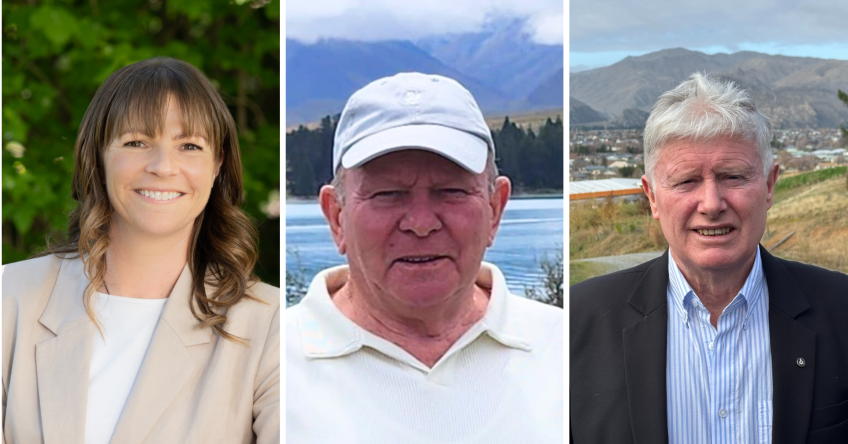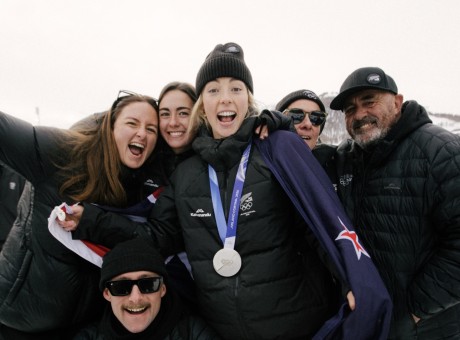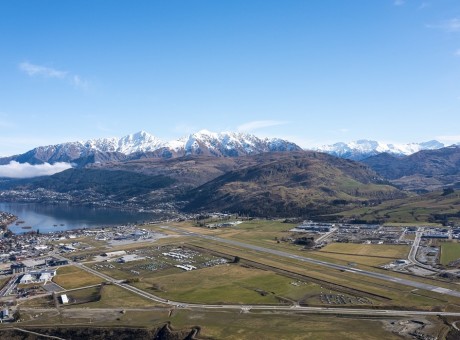Central Otago's first mayoral race since 2019


The Central Otago District Council mayoralty is due to be contested for the first time since 2019, with two challengers stepping up to face Tamah Alley.
Roxburgh’s Mark Quinn and Cromwell’s Charlie Sanders are seeking election, as is incumbent Tamah Alley.
Alley has been in the mayoral chambers since last October. Elected members voted her in following former mayor Tim Cadogan’s resignation. She says, if re-elected, she’d like to lift the council’s profile.
"The biggest challenge alongside that operational context and strategy context about how we spend and where we spend and what we invest in, is how we tell that story with our community and how we make sure people can understand what has become a really complex organisation,” she says.
"What we are responsible for goes so far and beyond mowing lawns and fixing potholes ... What councils are going to be responsible for in the future is also going to change."
Alley’s vision is a district where more people are invested in having a say and feel a sense of ownership of the council.
Quinn’s background is as a business analyst, but he now owns an almond orchard in Roxburgh. He’s also the founder of Challenging Councils New Zealand, which hosts public meetings nationwide in efforts to shine a spotlight on councils’ debt.
He is also standing to be a councillor in the Teviot Valley Ward and says he’s motivated by the next generation.
"If I don’t do this, my grandkids will never own a house because rates are going to be far higher than the mortgage ... The bottom line is we have to do this for our grandchildren."
Sanders is Cromwell born and bred and is also standing as a councillor candidate in the Cromwell Ward. His grandfather was once the town’s mayor.
"I'm proud to carry that legacy forward, not out of ambition, but with a deep belief that Central Otago needs strong leadership and clear direction.
"I bring business acumen, commonsense thinking, and determination to get things done right."
Sanders shares Quinn’s sentiments about future generations.
"The costs of living here are making it really impossible for young families and retirees to stay here or our grandchildren to afford a home in the place they grew up in.
"My reason for standing is I hate to see our hard-earned money being squandered. I care deeply about Central Otago and our people."
Each candidate was asked to identify their three top priorities if elected.
For Alley, these were: a substantial increase in community engagement, outstanding partnering across boundaries for water delivery, and ensuring that any regional deal has a Central Otago flavour.
Quinn’s top three priorities are a full forensic council audit, a full council restructure, and to "control the expenses".
"At the end of the day, the reckless spending that's going on is driving us further and further into debt.
"I want a full forensic audit to expose where we are wasting money and blowouts."
Sanders’ three priorities are to stop what he sees as council waste, give the community full transparency and maintain ownership of council resources such as water services.
Sanders believes the council has been "focusing on flashy" rather than basics like future proofing infrastructure.
The trio is divided on the Southern Water Done Well council partnership which saw Central Otago, Clutha and Gore district councils agree to present a joint council-controlled organisation in their Water Services Delivery Plans, due to be presented to the Government by September 3.
The councils will be shareholders and have a say in how services are delivered.
For Alley, she says it’s one of her greatest achievements during her time in council.
"I think that water conversation and getting the water CCO (council-controlled organisation) over the line is probably the thing that I think is going to have the biggest impact on future generations - in a positive way, despite there being some negative sentiment out there," she says.
"We’re such a small country. There's a lot of things that we can be smarter about by working together."
But Quinn and Sanders oppose the joint water CCO. Maintaining ownership of council water services is a priority for Sanders.
"It doesn't make sense to take away a core business of a council, put it in the hands of another company, who then create another set of overheads, which have got to be paid for."
Quinn believes the council didn’t listen to feedback during consultation.
"While 57.4 per cent of the population said we want to keep our water in house, these councils turned around and said, we're not listening, we're going to adopt the CCO."
During consultation across the three district councils involved, 57.5 per cent of submitters preferred water assets remain in-house. However, looking at feedback specifically from the 303 CODC respondents, 47.5% supported the joint CCO.
All three candidates agree that rates are a hot topic.
Quinn wants to look at ways to diversify council revenue streams to reduce rates.
"We have to go back to the basics and start rebuilding the council from scratch, back to where it was. We certainly don't need to sell the assets that the council is selling. I'm dead against them selling the local waters because it belongs to the people, not the council."
Sanders believes rates are driving inflation.
"I'm just sick of seeing costs continually going through the roof. And I know I'm not alone in that concern. And I just think that I'm a local person with a local upbringing and local views."
Double-digit rates rises can’t continue, Alley acknowledges. But she feels these have peaked and says the challenge is balancing community wants and needs with affordable rates.
"I think the community really wants to see a future vision for the council that recognises that our communities have aspirations around growth and improved quality of life. But that they want to see those really carefully weighed with people's ability to pay rates."
In the coming weeks, Crux will publish individual, detailed mayoral candidate profiles as well as councillor candidate statements. Find out more about the candidates’ priorities, their views on affordable housing and rates, community engagement, and balancing the needs of different wards.
Voting for the local body elections runs from September 9 to October 11.
Candidate statements, with a good quality high resolution landscape (not portrait) photo, can be sent to [email protected]
Main image: From left, Tamah Alley, Mark Quinn and Charlie Sanders are vying for the Central Otago mayoralty.
























